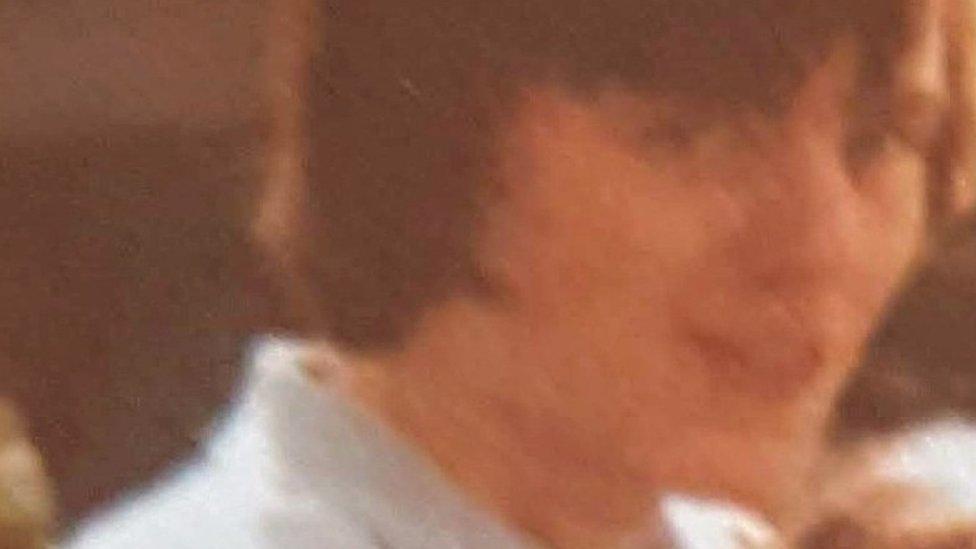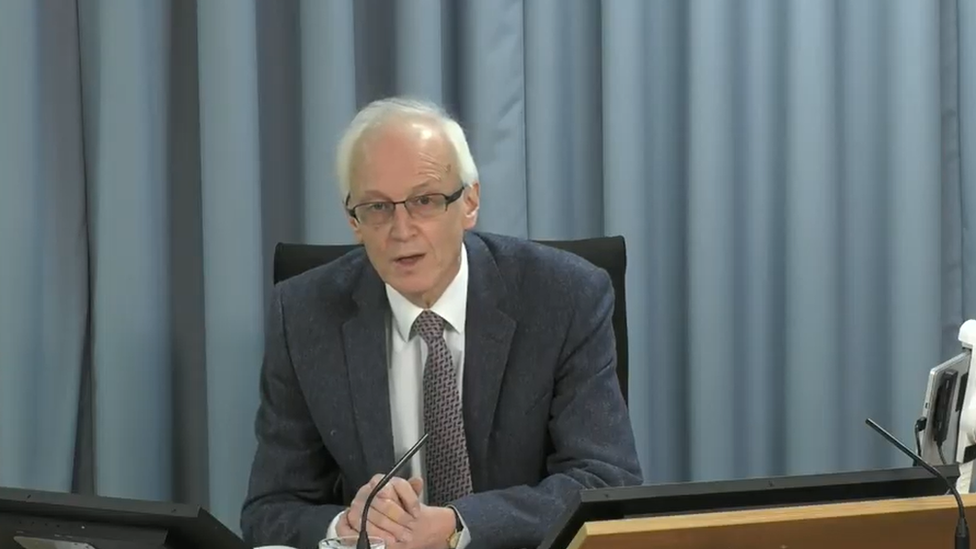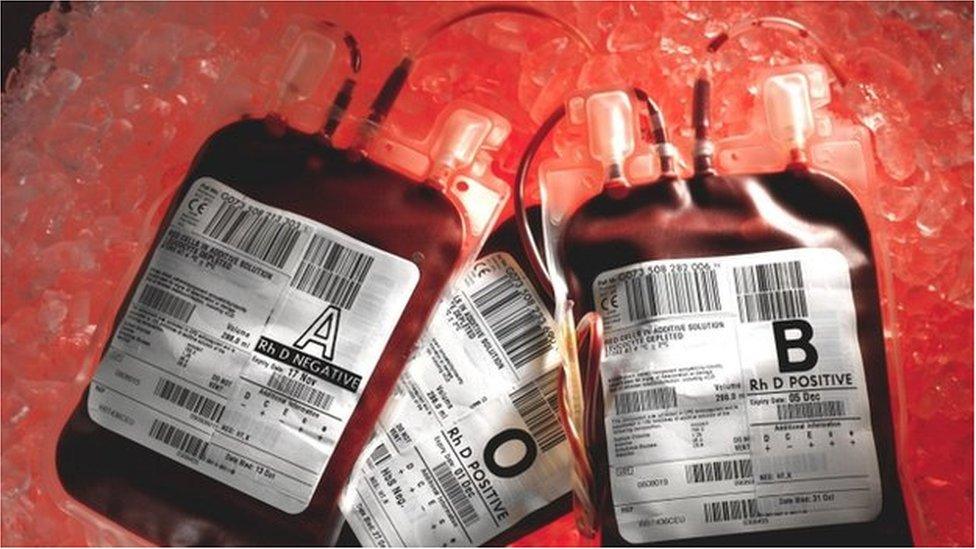Infected Blood Inquiry: Man 'not told of Aids diagnosis for 18 months'
- Published

Kevin Slater had his treatment in Cardiff, the inquiry heard
A man who was treated with imported blood products in the 1980s became the first haemophiliac in the UK to test HIV positive and die of Aids, an inquiry has heard.
Kevin Slater, from Cwmbran, was 20 when he developed Aids, external in 1983 the Infected Blood Inquiry has been told.
He was not informed that he had been diagnosed with the condition for at least 18 months and died in 1985.
Records show it was recommended that the diagnosis be kept from him.
The UK-wide inquiry is looking into what has been described as the worst treatment disaster in the history of the NHS.
Haemophilia is a blood condition which affects the clotting of blood in those affected.
In the 1980s some of the blood products used to treat the condition were infected with HIV.
The inquiry heard there were about 100 haemophiliac patients in Wales at the time.
Mr Slater's sister-in-law Lynda Maule said she does not believe he was ever told he had Aids.
"He was treated disgustingly," she told the inquiry. "There was no care, nothing.

The inquiry is being held before former High Court judge Sir Brian Langstaff
"The way he was treated - put in a separate room, meals being passed through the door.
"This guy towards the end was being fed by his parents because he couldn't get out of bed, he couldn't physically get out of bed.
"I don't think he was ever told, that's my honest opinion. I don't remember ever hearing Kevin say 'Oh you know this is the score then mum' or his Mum actually looking up and saying 'we've found out what's up'."
Mr Slater's brother Paul was also a haemophiliac who died of Aids in 1991 after being given infected blood.
Ms Maule said hearing the evidence at the inquiry has been difficult but added it is important to establish justice for those who were infected with HIV as a result of contaminated blood.
"Hearing it all again today brought it all back," she said. "I can see this guy there, crying out for help and not getting it."
The inquiry also was told consultant Prof Arthur Bloom did not immediately inform the haemophiliac community that he was treating a patient with a confirmed case of Aids.
This was despite Aids being marked as probable on Mr Slater's medical records.
For several months Prof Bloom continued to describe the case to haemophiliac groups and officials in terms such as "possible" and "suspected" and that links had not been established with infected blood products.
Inquiry chairman Sir Brian Langstaff described the descriptions as "difficult to reconcile".
The hearing is continuing.
Related topics
- Published2 December 2020
